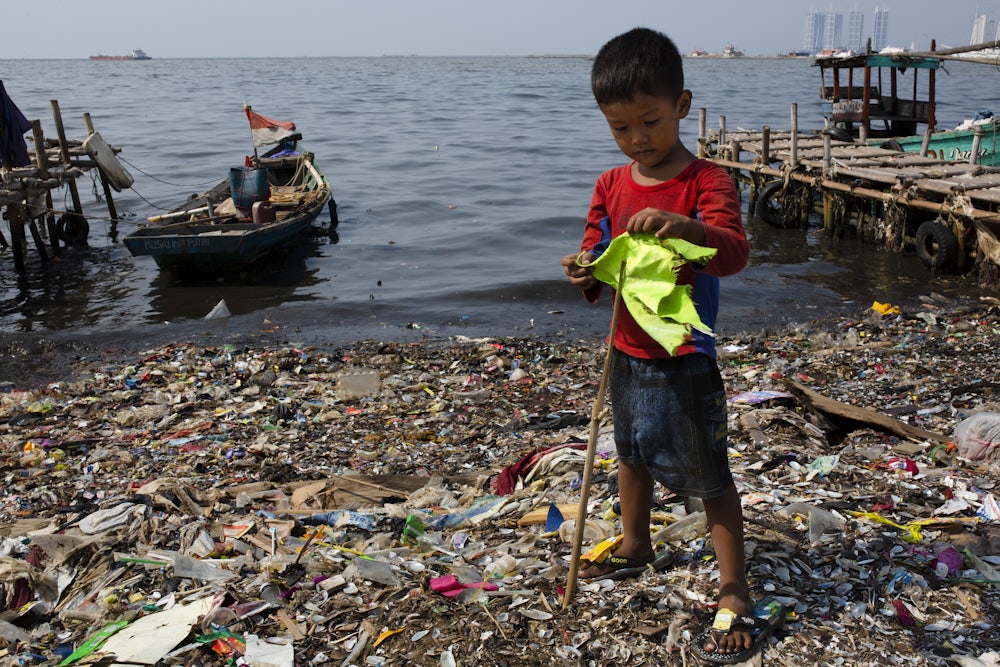Starbucks’ recent decision to phase out plastic straws by the year 2020 has come under fire from the disability community. Eliminating straws, they note, has the potential to hurt thousands of people with neurological, movement, and muscular disorders who need plastic straws to safely drink fluids. Starbucks has pointed out that straws won’t actually be eliminated—its stores will still have paper or biodegradable straws available for those who need them. But those alternate straws are often inadequate for disabled people, who need safe, sturdy, flexible straws.
The disability community’s concerns are valid, and have started a necessary conversation about who benefits—and who suffers—from efforts to clean up the ocean. The way some see it, Starbucks is choosing the needs of vulnerable sea turtles over the needs of vulnerable humans. “People like being advocates for the environment and animals. You know why? It’s easy,” one disabled blogger wrote. “Relative to activism and allyship for groups of humans, I mean. The environment doesn’t talk back and tell you that you’re doing it wrong.” At Upworthy, journalist Parker Molloy made a similar observation. “As a society,” she wrote, “we are far too quick to write off the concerns of marginalized groups as insignificant or inconvenient.” As one Twitter user put it, “I choose people over straws.”
But efforts to reduce plastic straws and other single-use products aren’t just about protecting turtles, nor are they solely about preserving some abstract concept of nature. The anti-plastic movement is also about protecting vulnerable humans, who, just like the disabled, rarely have a voice in political discussions.
Of the eight million metric tons of plastic waste that gets lost at sea every year, most break down into tiny microplastics that eventually get ingested by humans via seafood. The health impacts of that are largely unknown—but if scientists do find that it has a negative impact, then developing countries without strong food-safety regulations would be particularly at risk. The plastics that don’t break down, however, tend to swirl in large ocean garbage patches, and eventually wash up on beaches. That becomes particularly problematic when those beaches belong to developing nations that don’t have adequate waste management systems. People wind up burning the plastic trash and inhaling toxic emissions, according to the United Nations.
The U.N. also points out that ocean plastics facilitate the spread of some tropical diseases, “by providing breeding grounds for mosquitos, which can foster the spread of cholera.” Floating plastic, it said, “can survive for thousands of years and can serve as mini transportation devices for invasive species.” The risks and consequences of invasive species and cholera are relatively low in developed countries. But in developing countries, they can be devastating.
Starbucks’ plan to eliminate 1 billion plastic straws per year is not going to solve this problem. China, Indonesia, the Philippines, Vietnam, and Sri Lanka are the worst offenders when it comes to ocean plastic pollution, according to a study published in Science. But the United States contributes as well: It was twentieth on that list, “producing as much as 3.5 million metric tons of marine debris each year,” according to The New York Times. In order to reduce that amount of plastic, consumers must push corporations to stop producing so much of it in the first place.
Starbucks’ move to phase out plastic straws is a positive step toward changing a culture that’s accustomed to single-use plastics. At the same time, the company’s plan could cause additional challenges for its disabled customers. Surely Starbucks can find a solution—perhaps keeping plastic straws in a dispenser near the counter, so disabled people can access them without having to ask. In an email, a Starbucks spokesperson would not say if it was reconsidering tweaks to its plan, but said the company “will continue to take an inclusive approach as we look ahead to our phased roll-out.”
The environmental movement has an unfortunate history of ignoring the well-being of humans—particularly marginalized humans—for the sake of animals and “nature.” That’s changed a lot in the last decade, but the movement could still improve how it communicates its priorities. That doesn’t require pitting groups of disadvantaged people against each other; it just requires recognizing that both exist.
